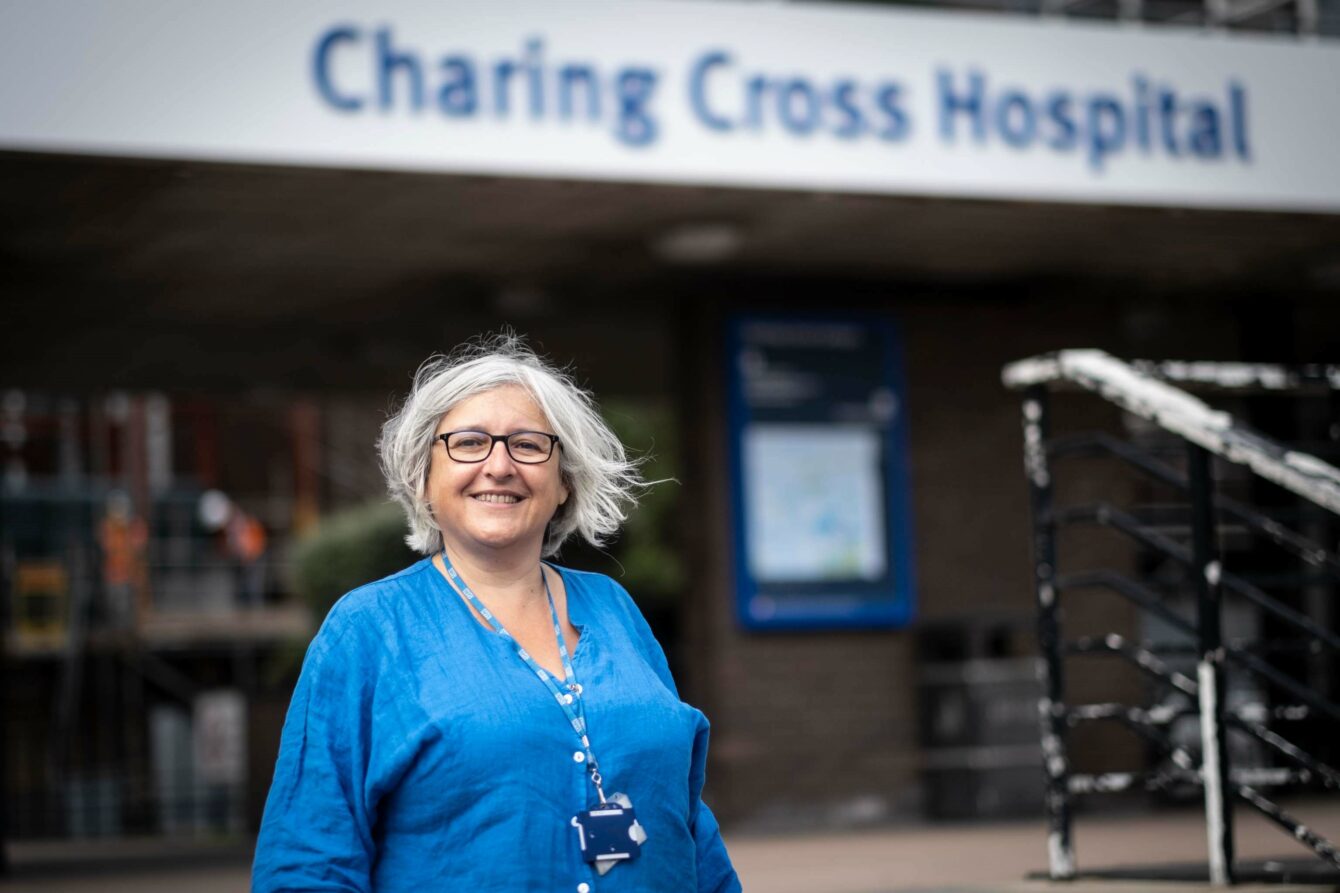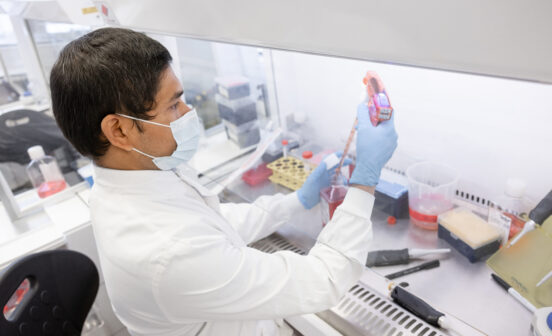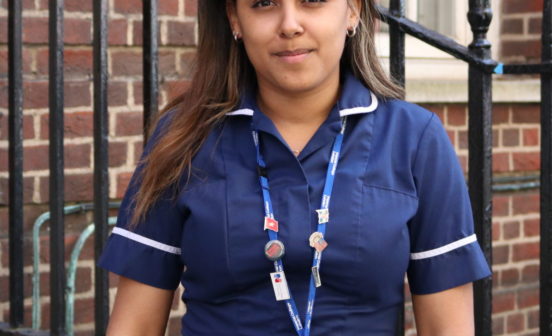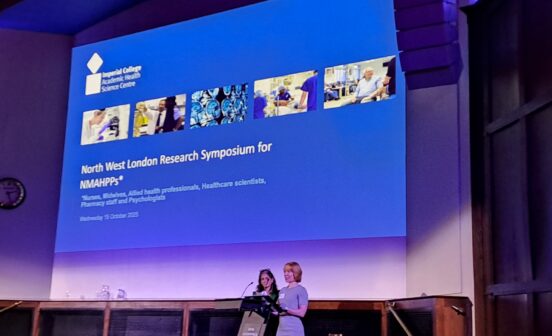Interview A tête-à-tête with Caroline Alexander on National AHP Day

To celebrate National Allied Health Professions (AHP) Day, 14 October, we spoke to Caroline Alexander, NIHR Imperial BRC Academic Career Lead, who has worked at the Trust since 2003 and is preparing to retire from her role as Lead clinical academic for Allied Health Professions (AHPs) this year.
Career at the Imperial College Healthcare Trust
I started as ‘superintendent III physiotherapist and research physiotherapist’ at a time before the agenda for change kicked in and changed our job titles, and before I knew the term clinical academic! As you can imagine, with such a long name and job title my name badge was hard to read. I had a 50:50 split between developing my post-doctoral research and being a musculoskeletal physiotherapist in the physiotherapy outpatient department.
In 2012 I was awarded an NIHR Senior Clinical Lectureship which gave five years of funding to support my research which aimed to understand what we need to target as physiotherapists to help people who are overly flexible – known as hypermobility spectrum disorder. At the end of the award, an opening for the Research lead for therapies came up and I was able to combine this role with clinical work to become the Lead clinical academic for therapies. I then progressed to my current role of Lead clinical academic for Allied Health Professionals about two years ago.
Inspiration for the career in clinical academia?
I have always enjoyed being a physiotherapist and I never wanted to stop that part of my career, but I also wanted to answer questions where research wasn’t helping me to support my patients. I began to see how understanding and doing research was impacting my ability to treat my patients, and I wanted to pass that understanding on to other clinicians.
“It is the difference you make to an individual, whether they are a patient or a member of staff, that will stay with me.”
Specialist areas of research
Being overly flexible is a conundrum; some people are asymptomatic (showing no symptoms), and it can be an advantage when doing different sports or being a musician. However, for others, it can be disabling when they suffer from multiple joint pain, fatigue, joint instabilities, frequent injuries and much more. I’m interested in trying to understand why some people are okay, and why others are not. If we understand this better, physiotherapists can be targeted in their approach to care. I’ve been exploring motor control, kinematics and kinetics, pathways of care, strength and power, and other relevant factors to help our understanding.
Change in the Trust and the NHS over the years
I began my career at Hammersmith Hospitals before Charing Cross and Hammersmith joined with St Mary’s. And, as my career comes to an end, our hospitals are now part of a wider Imperial College Academic Health Science Centre and the largest NIHR Imperial Biomedical Research Centre. Although things go up and down for the NHS as a whole, the careers and opportunities for physiotherapists have been broadening as we now work with an extended scope: we are first-contact practitioners, we have gained prescribing rights, we work in multi-professional teams across the different sectors of the NHS and, something that has been particularly important to me is that we have been developing as researchers. All of these pathways help us to work together to better support the care of our patients.
Career highlights
Some patients in particular stay in your head, especially where you hope you have made a difference. Some of the research I’ve done has also impacted care, but a key highlight has been talking to people who are contemplating doing research, and then supporting them to become the expert clinical academics that they are across different allied health professions. It is the difference you make to an individual, whether they are a patient or a member of staff, that will stay with me.
Special message for the AHPs
On National AHPs’ Day, it is great to celebrate the contribution that all of us in our different ways bring to patient care. For some AHP departments, we are becoming a destination for people who want to undertake research, with a pipeline of clinicians going from pre-doctoral through to post-doctoral fellowships. I am proud of the training, mentorship and supervision we and the Clinical Academic Training Office (CATO) offer. It is difficult to create a career structure for clinical academics but that means we have to be more innovative and determined to create it. I look forward to hearing all about the energy and innovation that the next person in my post brings to this challenge!
My parting message is for AHPs to ensure they take up, push forward and build on the opportunities our careers present.
Retirement plans
I’m looking forward to being outside; my office doesn’t have windows so I’m particularly looking forward to being in natural light! I am looking forward to a more spontaneous life; as an outpatient physiotherapist my diary has been planned my whole career, so I want some time without a plan!



